Why I Stopped Wearing an OURA Ring
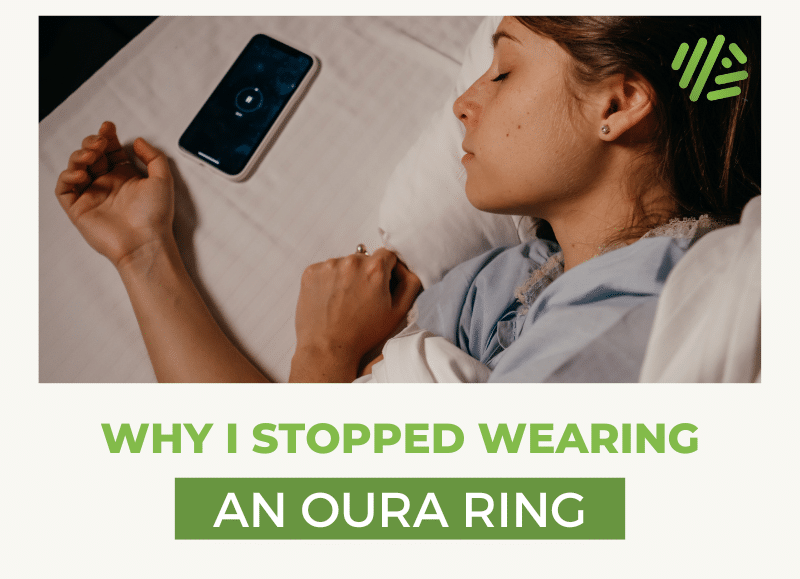
We need good sleep to be healthy.
This much is not in dispute.
The question posed for my review of the OURA ring, a popular sleep tracking device, is whether compiling personal sleep data helps reach the goal of better sleep.
In my case, the answer was yes in the short term and no in the long term.
Let’s dive in for the full review.
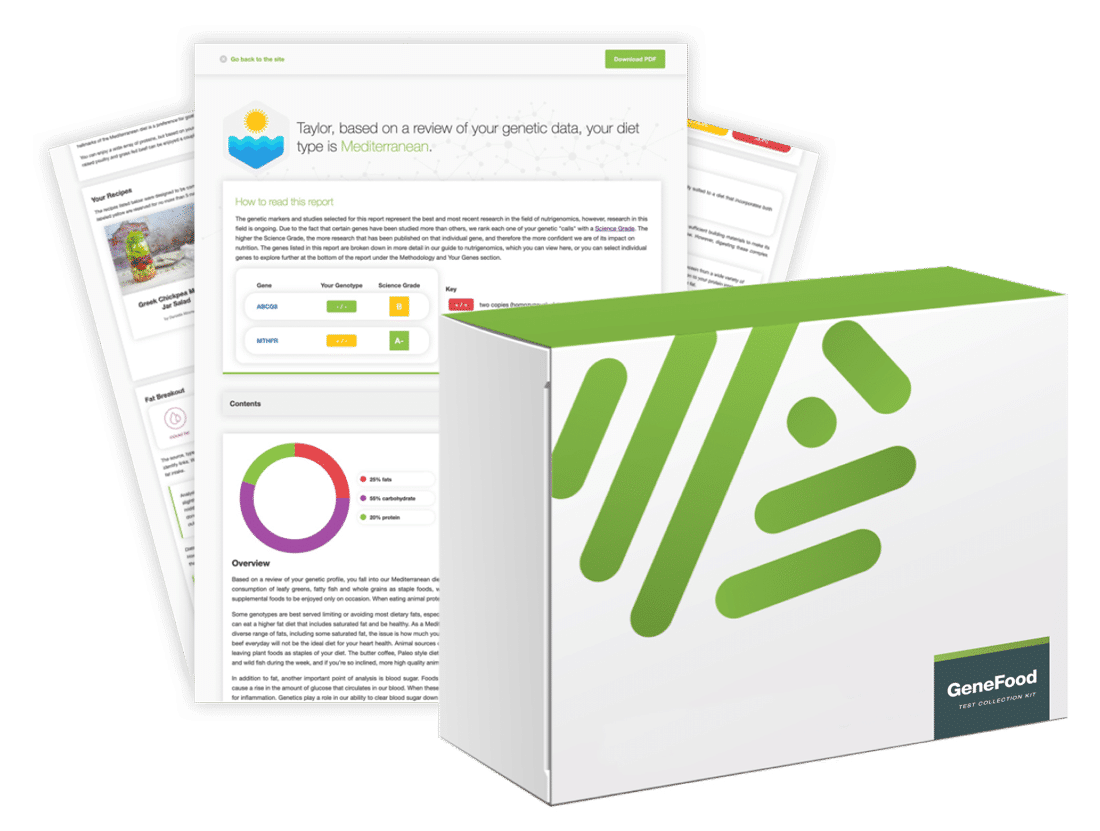
Unlock Your Personalized Nutrition & Supplement Report
Gene Food uses a proprietary algorithm to divide people into one of twenty diet types based on genetics. We score for cholesterol and sterol hyperabsorption, MTHFR status, histamine clearance, carbohydrate tolerance, and more. Where do you fit?
My OURA ring review
When I first ordered an OURA Ring, my girlfriend at the time (I am now happily married) said something like “congrats, you just ordered a ring to make you crazy.”
As it turns out, the OURA ring never made me crazy. I enjoyed wearing it for a time, but after about 4 months, it taught me all it could.
The OURA ring now serves as a reminder of the type of health trend I do not want to participate in – namely health trends that have the potential to be bad for my health.
I decided to stop wearing my OURA ring after seeing a Linkedin connection post yet another article on how important sleep is and why the risk for a whole host of terrible diseases is higher if you’re not sleeping like a champ.
It was the straw that broke the camel’s back.
I destroyed my OURA ring.
Like physically destroyed it.
You may see that as rash, but I do things like that from time to time. I see the destruction of my OURA ring as akin to Frodo casting “the ring” into the fiery pits of Mordor. A beautiful ring is lost, but humanity, or in this case my mental health, is better off.
However, just because I cast my OURA ring “into the fire” and freed myself from the madness does not mean my experience was all bad.
In fact, there are numerous positives associated with wearing an OURA ring, although I think it’s fair to say that most of the benefits are heavily front loaded.
OURA ring benefits
The OURA ring adds value as a reminder of the importance of good sleep hygiene, especially in a crazy city like New York. It might not get your sleep duration or cycles correct every time, but it often does a pretty good job and serves as a reminder that sleep is crucially important to staying healthy.
Improved sleep hygiene
Wearing an OURA ring helps maintain good sleep habits. The little ring acts a kind of sleep enforcer, asking you “do you really want that next drink? You know what it does to your sleep.”
For me, the major “stick” was the readiness score and resting heart rate data. When I was sick, or when I drank more than one alcoholic beverage, my heart rate shot up and my readiness score declined. Too much caffeine, or a late night on my laptop also dropped my readiness.
Since wearing the ring I prioritize sleep far more than I used to.
I am more likely to prepare for bed by taking a bath or reserving time for reading.
Establishes sleep lessons
Wearing the OURA ring teaches you lessons about the habits that make for good sleep and those that make it harder to get a good night’s sleep.
Overall, the big revelation for me was just how much alcohol messes with my resting heart rate. It’s clear to me that a 1 drink max is the healthiest option for my body, and to its credit, wearing the OURA ring has caused me to cut back on booze even more than I had in the time period before wearing the ring. Alcohol is now a one and done exercise with a focus on great quality spirits. My mezcal bender days are, for the most part, behind me.
Similarly, I cycle on and off caffeine and order a “half caff,” half caffeine, half decaf coffee in the mornings.
I’ve also noticed that meditation is helpful for my sleep, as is getting in cold water in the morning.
I also sleep better in the mountains than I do in New York City, which isn’t a huge shocker.
Readiness score accurate
Based on my experience, the daily readiness score is more accurate than the overall sleep score.
I say this based on nights like when I felt like I slept like a rock, not waking up once and having dreams, then waking up to my ring telling me I was awake for 1 hour and 45 minutes. After those night my readiness remained high at 81, but my total sleep according to my ring was 6 hours and 9 minutes.
This makes sense as the technology used to track heart rate and heart rate variability is more accurate than sleep tracking, at least for now.
Helps plan exercise intensity
The consensus view is there is little to gain from a tough workout on days when you are under slept. Since the readiness score seemed accurate for me, I found readiness to be a good bellwether of when I wanted to try a tougher workout. Generally, I would only do demanding workouts when readiness was above 80.

Unlock Your Personalized Nutrition & Supplement Report
Gene Food uses a proprietary algorithm to divide people into one of twenty diet types based on genetics. We score for cholesterol and sterol hyperabsorption, MTHFR status, histamine clearance, carbohydrate tolerance, and more. Where do you fit?
Problems with the OURA Ring
Movement and step count way off
The OURA movement and step trackers are not even in the ballpark. My OURA ring would tell me I walked 7 miles on days when I knew I hadn’t come close to this kind of mileage. Days after my hardest workouts I’d get a screen telling me it was good I took it easy the day before. Living in New York gives you a good sense of how much you’re walking – for example, a trip to my sister’s apartment is 1.1 miles west. Walking to lunch is half a mile. You get an idea of whether you’re at a 3 mile walking day, or a 5 mile day. OURA was never close to a day of real movement for me.
Here is an example from Sunday. My iPhone steps counter says I did 9,901 steps. By contrast, OURA ring says 15,300, or 9.3 miles of walking. I walk a lot, but I definitely didn’t do a 9.3 mile day Sunday.
Sleep data questionable
Let’s get a few things out of the way before we get into the studies and my personal data.
First, I read OURA ring reviews with some skepticism due to the fact that the people who tend not to like the ring are the same people who get crappy sleep data. On the other hand, when you pay over $300 for the ring, you don’t want to believe you wasted money. Further, most of the vocal advocates for the ring are investors in the company (Attia, Asprey).
So, time to gauge my credibility as a reviewer. How was my sleep data?
Not terrible.
The OURA cloud allows you to see trends in your total data. On average, I have been getting about 6:45 minutes of sleep a night, with about 1 hour and 30 minutes of REM and about 1 hour and change of deep sleep. My resting heart rate is usually at about 48 beats per minute. This isn’t great sleep, but it’s not bad in light of the OURA ring is routinely off by 20-30 minutes on sleep duration, and often the inaccuracies are close to an hour off the mark.
I’ve listened to Vegan podcasts (that I will not name) where the hosts have complained of 5 minutes or less deep sleep for weeks while wearing an OURA ring. I don’t think it’s likely that an OURA reading of 5 minutes of deep sleep was actually a night of abundant restful deep sleep.
I am not saying the data is worthless, however, the studies we have available do call into question the data for “on the fence” nights like I routinely have.
On a night like last night where I supposedly got 6 hours and 9 minutes of sleep with 1 hour and 18 minutes of REM and 42 minutes of deep sleep, small discrepancies in accuracy could make a big difference in how I view my day.
I felt like I slept like a rock with zero awake time during the night, and yet OURA tells me I was awake for 1 hour and 44 minutes last night.
Who is right?
Well, as it turns out we have a study to point to.
Researchers in San Francisco took 41 subjects aged 14-22 and tracked their sleep for a single night against the gold standard brain wave trackers which use polysomnography (PSG) technology. The OURA ring technology uses a proprietary blend of heart rate tracking combined with tech called actigraphy, a more “old school” motion sensor method for sleep tracking. The charts below map the reliability of the OURA ring vs. PSG tech. Look at the first graph on the top left. There you see that the OURA ring, in most cases, tracks in line with the PSG test which is impressive. But when you see the 41 individuals represented on the charts you see that it was not uncommon at all for OURA to get even total sleep time off by 30 minutes, and in some cases, approaching an hour – both over and underestimating sleep.
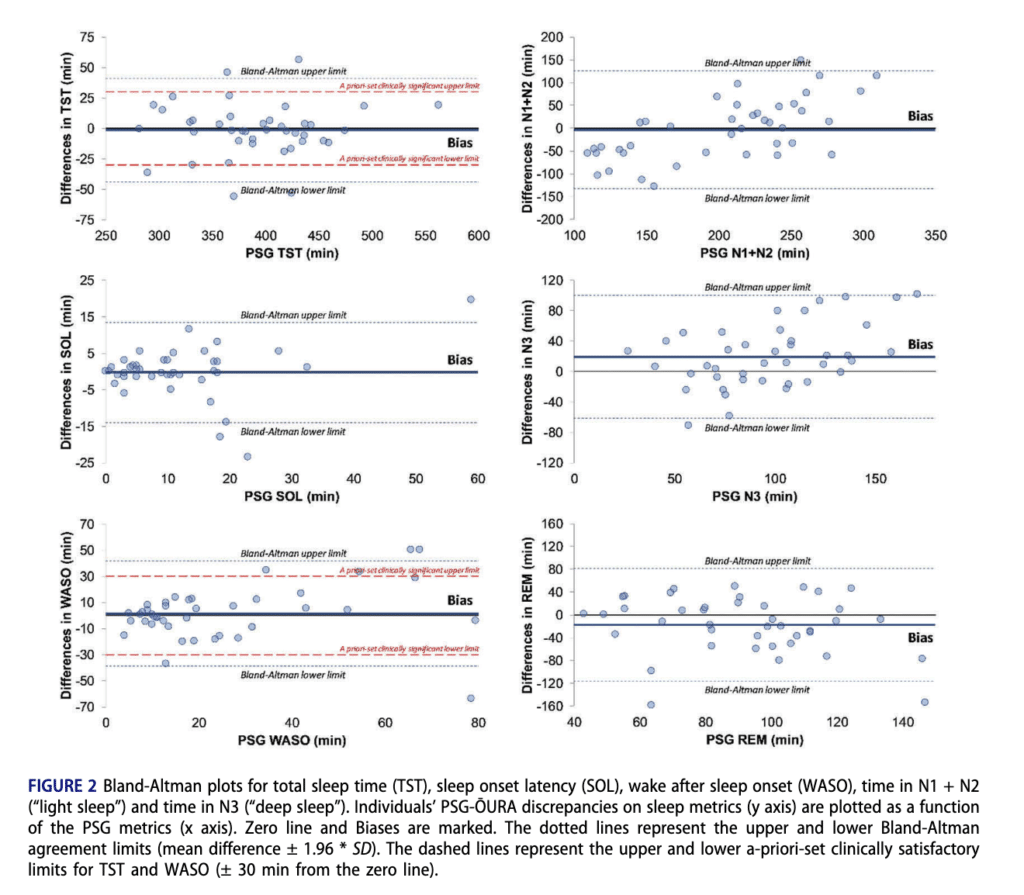
This is important data for someone like me since my sleep length was always pretty good, but not at the 7 hour threshold where I want to see it. The odds are that OURA ring accurately measured my total sleep, but there is also a significant chance it was off. The distribution in these graphs says it all. If you use OURA ring and find it’s very accurate based on how you feel when you wake up – you’re probably right. On the flip side, if you feel just the opposite, it’s very plausible that you are seeing a sleep duration that is either shorter or longer than the ring reports.
To quote study authors:
Compared to PSG, actigraphy has high sensitivity (ability to detect sleep) although specificity (ability to detect wakefulness) is lower.
In my case, I am pretty sure there were a number of nighty where I slept well but the OURA ring recorded me as awake when I was sleeping.
As you can see from the graphs, the ability of the OURA ring to detect the various sleep stages is also mixed.
Nocebo effect
One major issue with the ring is how it sets the tone for your day. You almost ask the ring – “hey there buddy, how should I feel about my day today?”
Bad OURA ring data makes me feel worse about the day ahead. When readiness is low, the OURA ring data seems to give a pretty good window into how I am feeling. If the score is low, I am usually feeling off. However, more and more I notice days where I supposedly was up all night, but I feel great and my readiness is strong too.
More days than I can count I have woken up ready for a great day, sure my ring will corroborate the good night’s sleep I know I just had, only to have my hope’s dashed by a middling sleep score. There is reason to believe this data may be suspect for some people, however, let’s say for sake of argument that it is perfectly accurate – does it benefit your health to have a ring placing more stress around poor sleep?
Is there a case to be made that the suggestion of a poor night’s sleep will actually make you perform worse than if you had the benefit of a false belief that you slept well?
This is where the OURA ring takes some of us into the “Nocebo” waters.
According to Wikipedia, a Nocebo effect occurs when:
when negative expectations of the patient regarding a treatment cause the treatment to have a more negative effect than it otherwise would have.
We all know we need good sleep. If you’re wearing an OURA ring, you’ve made the decision to prioritize rest so you’re already “drinking the Kool-aid.” Once you’ve learned the basics of how lifestyle impacts sleep and heart rate, what value is there in a nightly tally of REM, deep, and light sleep, even if it is accurate?
Worse, what if the data you think is helping is actually causing more stress surrounding the issue of sleep, which ironically, prevents you from sleeping.
Do we need a piece of plastic and an app to determine if we slept well?
At its worst, the OURA ring feels more like a tool of neuroticism than of self care. Health and wellness can often feel like information overload and I simply don’t want to wake up and anxiously check my sleep score anymore.
Closing thoughts
The bottom line for me comes down to a few factors.
- The OURA ring is well made and is more likely to be accurate than not accurate;
- In a group of 40 people, about 8 will experience significant inaccuracies in their sleep data;
- We don’t know if these are the same people every night – meaning if accurate for one person one night we don’t know that accuracy stays constant or relative to previous nights;
- Most of the people advocating hard for OURA are investors;
- The hardware and tech itself are impressive;
- The first 4-5 months, when you learn sleep lessons, are when OURA provides the most value;
- Overall, the drumbeat of daily sleep data (and the stress that can come with it) will be too much for some people.
Note: after reviewing the study cited here, Aaron still plans to buy an OURA ring and he sees it as the best sleep tracker on the market.

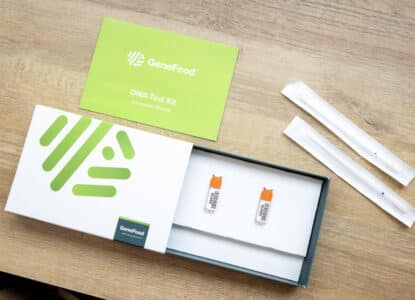
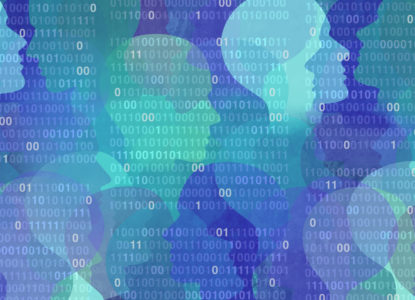
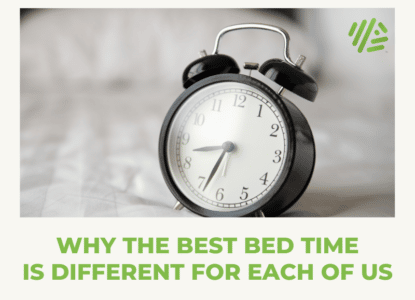
I believe that the Oura ring excels in monitoring resting heart rate, HRV and nightly temperature variations. As with all sleep trackers, sleep stages can not be accurately measured using only a PPG and accelerometer. However, my Oura ring did help me achieve and maintain a consistent sleep schedule.
Unfortunately, my Oura Ring lasted just over two years. I was charging the ring recently, before bedtime and the ring no longer connects to my iPhone. In fact, the Oura ring is no longer visible to any Bluetooth device scan (android of iOS). I contacted Oura and was offered $50 off a replacement ring. I plan to wait for another future device with better accuracy and longevity. RL
I have a very similar sense of the ring’s value. There are also some odd quirks in the readiness algorithm. Some nights my heart rate starts off quite low for me, and then at 3 am drop to very low for me, yet The ring warns me to take it easy because my heart rate dropped late into my sleep cycle! That is an odd fail in assessing my data. 3 or 4 months of use and I know exercise helps me sleep better unless it is done late afternoon or evening which elevates my heart rate, plus alcohol and chocolate definitely interfere with my sleep. That’s good information to have, but I don’t need to keep getting their inane analysis messages every day.
Excellent and thoughtful review. Thank you for taking the time to write this.
Appreciate the comment Arthur, thank you for reading.